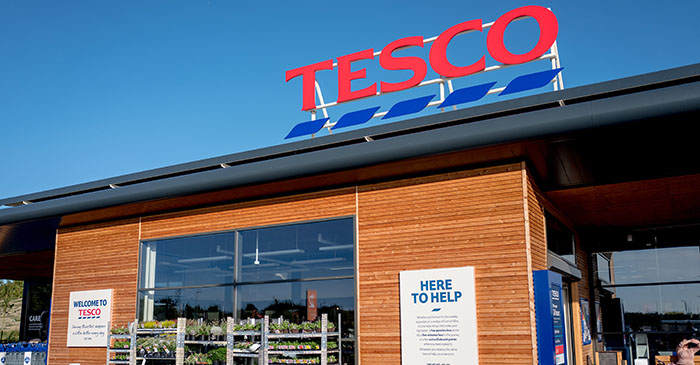The NPA has called on Tesco to do more to support struggling pig producers or risk losing its British pork supply base, amid growing concerns over the future of British pig production.
An NPA survey has shown that four in every five producers fear they will be forced out of business within a year unless their financial situation improves.
In an open letter to its chief executive Ken Murphy, NPA chairman Rob Mutimer stresses that Tesco, given its scale, is uniquely positioned to act to prevent the ‘destruction of the UK pig sector’.
UK pork producers are currently facing unprecedented losses as costs of production soar due to record pig feed prices. It currently costs an estimated 203-216p per kg to produce a pig, a figure forecast to rise even higher, as wheat prices continue to rise due to disruption caused by war in Ukraine. Yet average pig prices remain below 170p/kg, meaning many producers are losing tens of thousands pounds each week.
Retailers hold the key to injecting more money into the supply chain and several of Tesco’s competitors, recognising the vital role they play in supporting British farmers, have responded to NPA calls to increase their pig price. The Co-op, M&S, ALDI, ASDA, Morrisons, Sainsbury’s and Waitrose are now paying more for British pork through their dedicated supply chains, according to the NPA.
But Tesco, the UK’s biggest retailer, which has just announced a trebling of profits to more than £2bn, is yet to respond to the crisis hurting its pig suppliers.
Tesco support
In the letter, Mr Mutimer asks the Tesco boss for the retailer’s support. “The problems facing the sector have been building for some time and have arisen through no fault of the primary producers,” he writes, outlining how an ‘unprecedented crisis’ over the last 18 months has hit pig sector producers.
NPA survey data suggests there are still 100,000 pigs stuck on farms that should have gone to slaughter and farmers are losing in excess of £50 per pig due to the enormous gap between their cost of production and the price the supply chain is paying for pork.
The pig industry has already lost an estimated 10% of the breeding herd as producers have left the industry or cut down on production, while the NPA survey shows that 80% will not be able to survive the next 12 months unless the gap between the cost of production and pig prices is significantly reduced.
“By 2023 British pork will be in such short supply that most retailers will no longer be able to source it,” Mr Mutimer explains.
He stresses that Tesco is in a unique position to help because of its UK market share and vol- ume of pork sales. “Unless action is taken now and a fair price is paid, there will not be a domestic pig industry left to service the demands of your shoppers and we know how much they value fresh British produce,” Mr Mutimer writes.
“A relatively modest investment by Tesco will not only prevent the destruction of the sector, but it will mean that British pork will still be available at a price affordable to your custom-ers. Paying a little more today is likely to save you money in the long term.
“Unfortunately, we don’t have the luxury of time and each week that passes puts pig farmers further into the red.
“I fully appreciate that every part of the supply chain is under strain from inflationary pres- sures and your customers are struggling with the cost of living. However, I am sure that shop- pers and shareholders alike would want you to back British farmers and ensure that we can supply you with fantastic pork for decades to come.”
Member action
The NPA is also urging its members to write to Tesco directly to make a similar plea, whilst copying in their local MP.
“Tesco’s famous mantra is ‘Every Little Helps’ – well pig farmers need a lot of help and if Tesco doesn’t step up to the plate, it is going to struggle to source British pork in the future,” Mr Mutimer added.
You can read the full letter HERE
‘Would like to do more’
A Tesco spokesperson said: “We fully recognise the seriousness of the situation UK pig farmers are facing and have been working closely with our suppliers to understand what more we can do to support the sector.
“Through the buying models we already have in place, our suppliers have increased payments to farmers by £3.4 million since March 2022. However we would like to do more and are actively working with our suppliers on a further enhanced payment plan to support farmers in the short term.”




